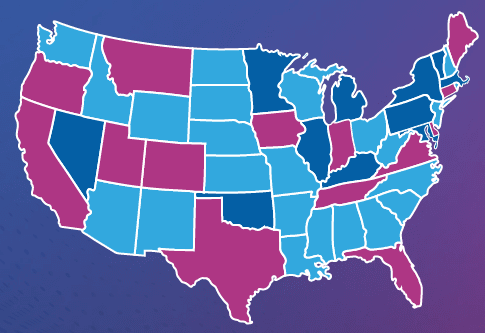AWS enables covered entities and their business associates subject to the U.S. Health Insurance Portability and Accountability Act of 1996 (HIPAA) to use the secure AWS environment to process, maintain, and store protected health information.
AWS provides a reliable, scalable, and inexpensive computing platform that can support healthcare customers’ applications in a manner consistent with HIPAA, HITECH, and HITRUST CSF.
AWS Business Associate: Under the HIPAA regulations, cloud service providers (CSPs) such as AWS are considered business associates. The Business Associate Addendum (BAA) is an AWS contract that is required under HIPAA rules to ensure that AWS appropriately safeguards protected health information (PHI). The BAA also serves to clarify and limit, as appropriate, the permissible uses and disclosures of PHI by AWS, based on the relationship between AWS and our customers, and the activities or services being performed by AWS.
Is AWS HIPAA Certified? There is no HIPAA certification for a cloud service provider (CSP) such as AWS. In order to meet the HIPAA requirements applicable to our operating model, AWS aligns our HIPAA risk management program with FedRAMP and NIST 800-53, which are higher security standards that map to the HIPAA Security Rule. NIST supports this alignment and has issued SP 800-66 An Introductory Resource Guide for Implementing the HIPAA Security Rule, which documents how NIST 800-53 aligns to the HIPAA Security Rule: https://nvlpubs.nist.gov/nistpubs/Legacy/SP/nistspecialpublication800-66r1.pdf
AWS HIPAA Eligible Services: https://aws.amazon.com/compliance/hipaa-eligible-services-reference/
HIPAA: The Health Insurance Portability and Accountability Act of 1996 (HIPAA) is legislation that is designed to make it easier for US workers to retain health insurance coverage when they change or lose their jobs. The legislation also seeks to encourage electronic health records to improve the efficiency and quality of the US healthcare system through improved information sharing.
Along with increasing the use of electronic medical records, HIPAA includes provisions to protect the security and privacy of protected health information (PHI). PHI includes a very wide set of personally identifiable health and health-related data, including insurance and billing information, diagnosis data, clinical care data, and lab results such as images and test results. The HIPAA rules apply to covered entities, which include hospitals, medical services providers, employer sponsored health plans, research facilities, and insurance companies that deal directly with patients and patient data. The HIPAA requirement to protect PHI also extends to business associates.
HITECH: Health Information Technology for Economic and Clinical Health Act (HITECH) expanded the HIPAA rules in 2009. HIPAA and HITECH together establish a set of federal standards intended to protect the security and privacy of PHI. These provisions are included in what are known as the “Administrative Simplification” rules. HIPAA and HITECH impose requirements related to the use and disclosure of PHI, appropriate safeguards to protect PHI, individual rights, and administrative responsibilities.
HITRUST CSF serves to unify security controls from federal law (such as HIPAA and HITECH), state law (such as Massachusetts’s Standards for the Protection of Personal Information of Residents of the Commonwealth), and non-governmental frameworks (such as the PCI Security Standards Council) into a single framework that is tailored for healthcare needs.
More info available at: https://aws.amazon.com/compliance/hipaa-compliance/



